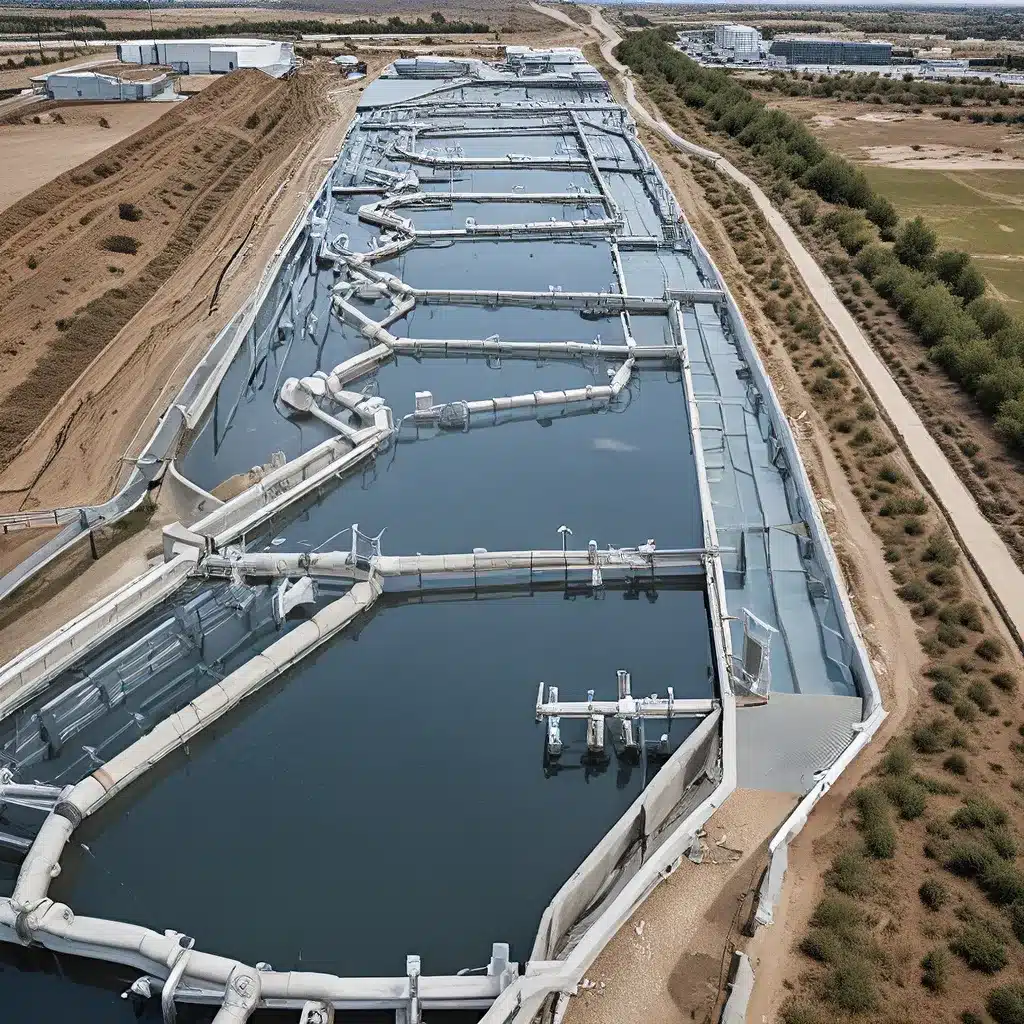
Tapping into the Water Crisis: A Thirst for Solutions
Water, the essence of life itself, has become a precious and scarce commodity in many parts of the world. As our global population continues to soar, the demand for clean, reliable water has never been greater. And yet, the sad reality is that 18% of the world’s population lives in India, but they only have access to around 4% of the world’s water resources. This stark disparity makes India one of the most water-stressed countries on the planet.
But the water crisis is not unique to India – it’s a global challenge that affects us all. Whether it’s aging infrastructure, contamination, or simply a lack of access, our water woes are mounting. And while we’ve made tremendous strides in technology and innovation, the problems of water scarcity and pollution persist, threatening our very survival.
Yet, I can’t help but feel a glimmer of hope. You see, a revolution is brewing in the world of water management, and it’s all thanks to the power of smart water solutions. These cutting-edge technologies are poised to transform the way we plan, develop, distribute, and manage our precious water resources, ushering in a future where sustainability and transparency reign supreme.
Rewiring the Water System: The Rise of Smart Water Management
Imagine a world where water is no longer a source of constant worry, but rather a well-oiled machine, optimized to meet our needs with precision and efficiency. That’s the promise of smart water management, a transformative approach that harnesses the power of the internet of things (IoT) to revolutionize the way we handle our water resources.
At the heart of this revolution are IoT sensors and meters, the sensory organs of the smart water system. These high-tech wonders continuously collect real-time data on everything from water quality and consumption to leak detection and precipitation patterns. It’s like having a battalion of water-savvy spies keeping a watchful eye on our H2O supply, ready to sound the alarm at the first sign of trouble.
But the beauty of smart water management doesn’t stop there. It’s also about advanced machinery and automation, with pumps, mixers, and self-optimizing sensors working together to streamline maintenance and monitoring efforts. Imagine a water treatment plant where equipment can self-diagnose issues and automatically adjust operations to ensure peak performance – no more midnight emergency calls for the maintenance crew!
And let’s not forget the SCADA (Supervisory Control and Data Acquisition) systems that act as the central nervous system of this smart water network. These powerful data-crunching machines gather information from all the sensors and equipment, analyzing it for trends and potential problems. It’s like having a team of water management superheroes, constantly vigilant and ready to spring into action.
Bringing Water to Life: The Power of Smart Analytics
But the real magic of smart water management lies in the advanced analytics that turn all this data into meaningful action. Picture a water utility manager sitting in their office, sipping their morning coffee and effortlessly monitoring the entire water system on a sleek dashboard. With a few taps, they can see where the leaks are, adjust water pressure to prevent waste, and even forecast equipment failures before they happen.
And the benefits of these smart solutions extend far beyond the control room. Smart water meters, for instance, are transforming the way we track and manage water consumption. No more manual readings or unexplained spikes in usage – these high-tech wonders send real-time data directly to the central system, ensuring accurate monitoring and transparency.
But the innovations don’t stop there. Machine learning algorithms are now capable of detecting leaks early by analyzing pressure fluctuations in the pipes, while automated internet-enabled valves can adjust water flow based on dynamic demand, preventing wasteful overflow. It’s like having a team of invisible water ninjas, quietly ensuring every drop is used to its full potential.
And let’s not forget the advancements in water treatment technology. Innovations like UV LEDs, advanced oxidation, and nanofiltration are revolutionizing the way we clean up contaminants, ensuring the safety and potability of our water supply. It’s a far cry from the clunky, energy-guzzling systems of the past.
Navigating the Challenges: Overcoming Barriers to Adoption
But as with any revolutionary technology, smart water management isn’t without its challenges. Despite the compelling business case for these solutions, some barriers still impede widespread adoption. Cost, for instance, can be a significant hurdle, especially for cash-strapped municipalities and utility providers.
And then there’s the issue of data security and privacy. After all, who wants their water usage data falling into the wrong hands? Ensuring the integrity and confidentiality of this sensitive information is crucial, and it’s a challenge that water management entities must carefully navigate.
But perhaps the biggest obstacle is the resistance to change. Many in the industry are set in their ways, comfortable with the tried-and-true methods of the past. Convincing them to embrace the future of water management can be a tough sell, requiring a delicate balance of education, incentives, and a clear vision for the benefits.
Flowing Towards a Sustainable Future
Yet, despite these challenges, I can’t help but be excited about the transformative potential of smart water solutions. By integrating sensors, data analysis, and automation, these innovative approaches are tackling the pressing issues of water scarcity, contamination, and inefficiency head-on. And as we continue to push the boundaries of what’s possible, I have no doubt that we’ll see even more groundbreaking advancements in the years to come.
So, let’s dive in and explore the future of water management, shall we? Because when it comes to safeguarding this precious resource, we can’t afford to sit on the sidelines. It’s time to immerse ourselves in the flow of innovation and ensure that every drop counts. After all, the fate of our planet and our very survival depends on it.


